There is a curious “down the rabbit hole, through the looking glass, Alice in Wonderland” quality to Hong Kong these days. Maybe it is caused, or helped, by the massive purge of independent sources of information over the last two years.
Whatever the reason, welcome to the new surrealism.
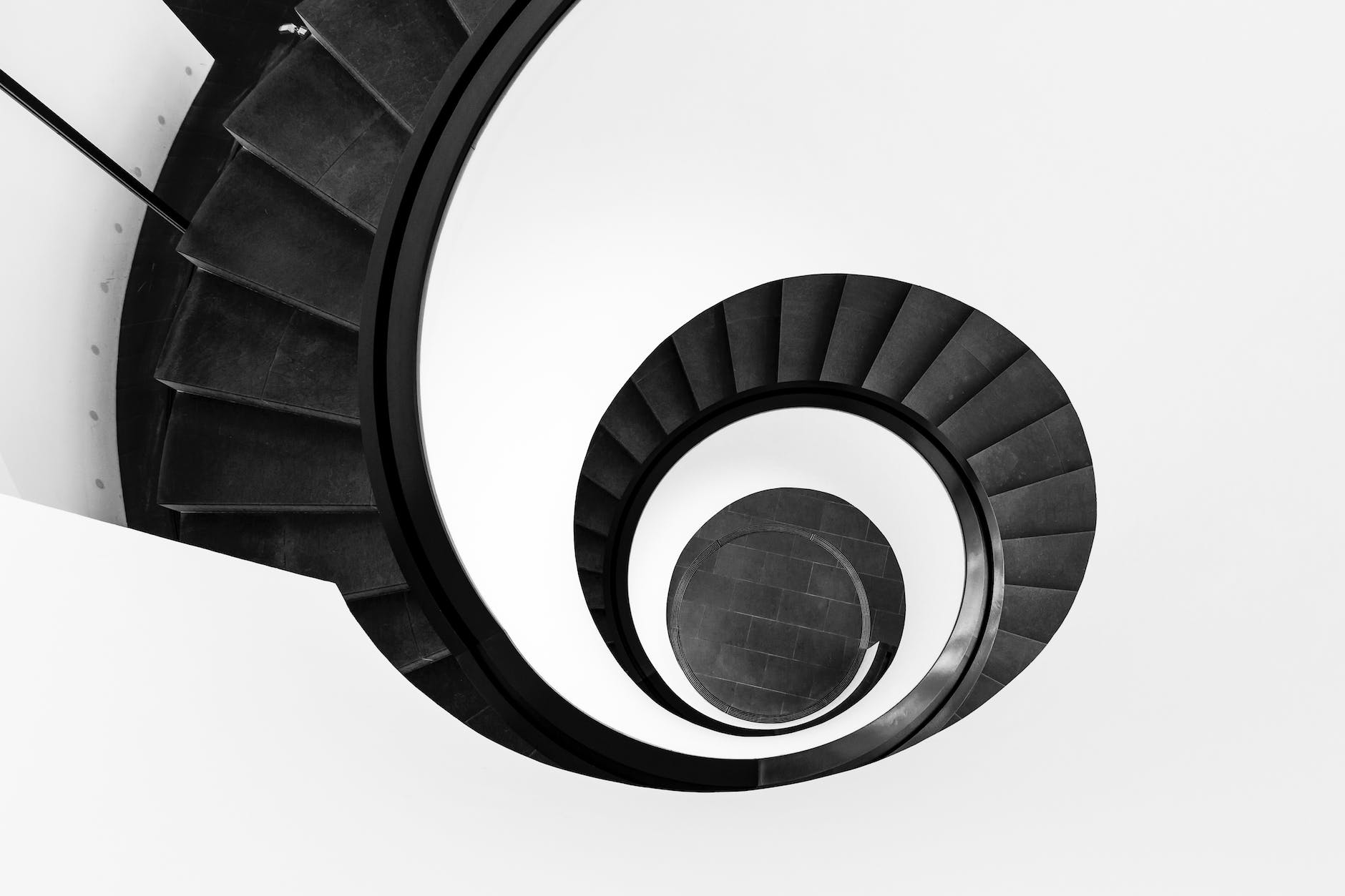
Let us start with reports of an overseas expedition to the US, UK and Singapore by four leading members of the Law Society. According to one, society president Chan Chak-ming, it was not their role to “tell a good Hong Kong story” – sorry, John Lee – but they had been dispelling misconceptions such as that “all local judges are appointed by Beijing”, and that “there is no judicial independence, fair trials or free speech” in Hong Kong.
Reading this RTHK story, you have to wonder which foreign lawyers they were talking to. I do not know anyone who supposes that “all local judges are appointed by Beijing.”
There are substantial concerns about the increased influence the government exerts on judicial appointments and promotions, and equally substantial concerns about the increased influence which Beijing exerts on the government. But Beijing appointing all local judges? Fiction.
There is a similar lack of nuance to the other three “misconceptions.”
Nobody believes that judicial independence has entirely expired, though it is certainly looking a bit under the weather. Some trials are fairer than others but nobody believes that there are no fair trials.
Free speech is not an on-off switch, an “either you’ve got it or you haven’t” thing like pregnancy or being able to ride a bike. There are degrees of freedom and Hong Kong has moved the dial in the wrong direction quite a lot.
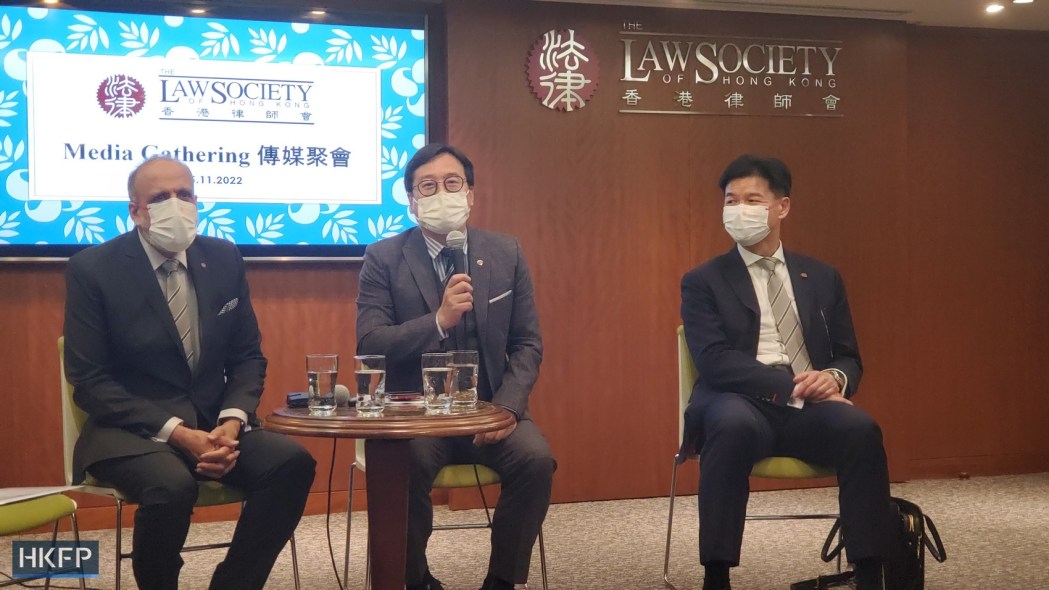
Law Society president Chan added a priceless observation. “I really can’t see under the current environment, we are not allowed to criticise the government. We criticise the government all the time,” he was reported as saying.
Come off it. One thing we have not seen in the past few months is a stream of criticism of the government, or indeed anything else, from the Law Society. This may have something to do with the fact that the last set of elections to the society’s council were a triumph for the “professionalism” slate, warmly endorsed by Beijing’s Liaison Office in Hong Kong.
This in turn may have had something to do with threats by the then-chief executive that if the Law Society elected a more critical council it might lose its authority over the profession. Talk of this “reform” subsided after the election produced the desired results.
We cannot say, of course, what happens in private. But if the Law Society is providing a stream of public-spirited criticism they are doing it in a surreptitious way which does not help to dispel suspicions about freedom of speech.
On freedom of speech, we have an astonishing China Daily op-ed by Legislative Councillor Junius Ho and barrister Kacee Ting Wong about this very topic. Much of this is a survey of the legal and philosophical arguments for freedom of speech which could usefully be shared with law students, and indeed with the secretary for security.
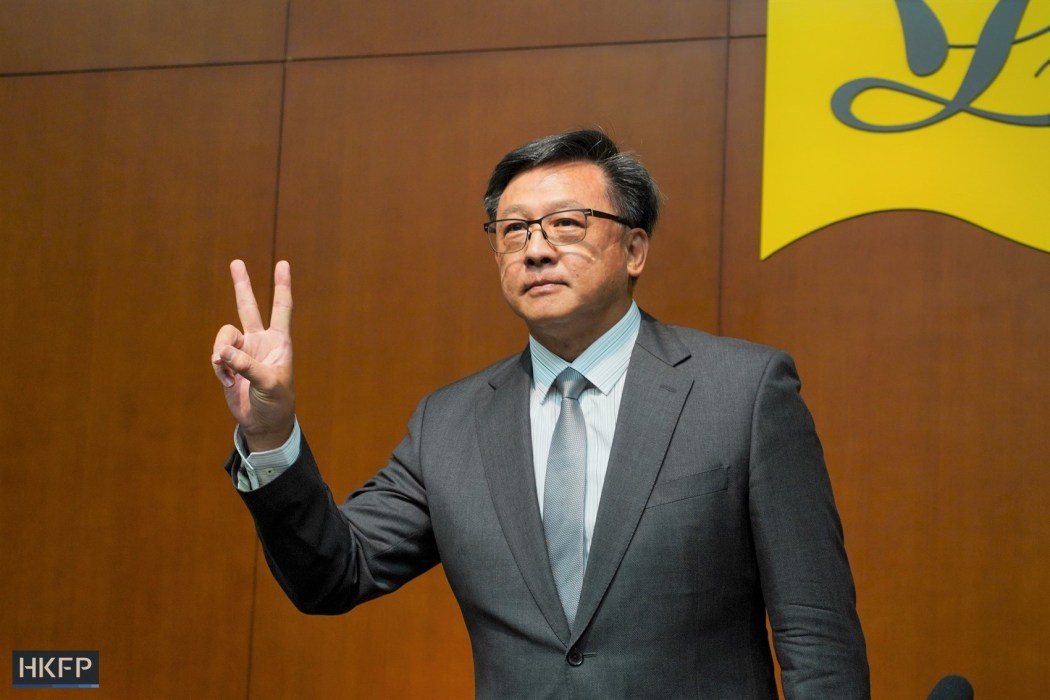
What, though, is the outrage which has spurred Ho into the lists on behalf of a threatened freedom? Is it one of the slaughtered media outlets or jailed journalists he is worried about, the use of sedition charges, the censorship of libraries? No. The victim, in Ho’s eyes, is himself.
This is weird. Ho is a lawmaker whose words of wisdom are often reported lavishly by the media. He also has a regular gig on the China Daily op-ed page. He is not on the mysterious but influential list of non-people who must not be interviewed by government-friendly media.
Ho’s beef is with a retired banker, Mark Peaker, who has written several letters to the South China Morning Post. One, from 2021, contained what Ho called a “dictatorial remark” in which “the torch of freedom of expression is being threatened by the brutal attempts of Peaker to forcibly bend the public discourse toward his LGBTQ-based viewpoints.”
Goodness, the torch of freedom of expression in danger! What did Peaker say?
“In a letter dated June 11, 2021, he criticized Junius Ho Kwan-yiu, one of the co-authors of this article, for referring to the Gay Games as disgraceful. He further called on Ho to shut up and apologise.”
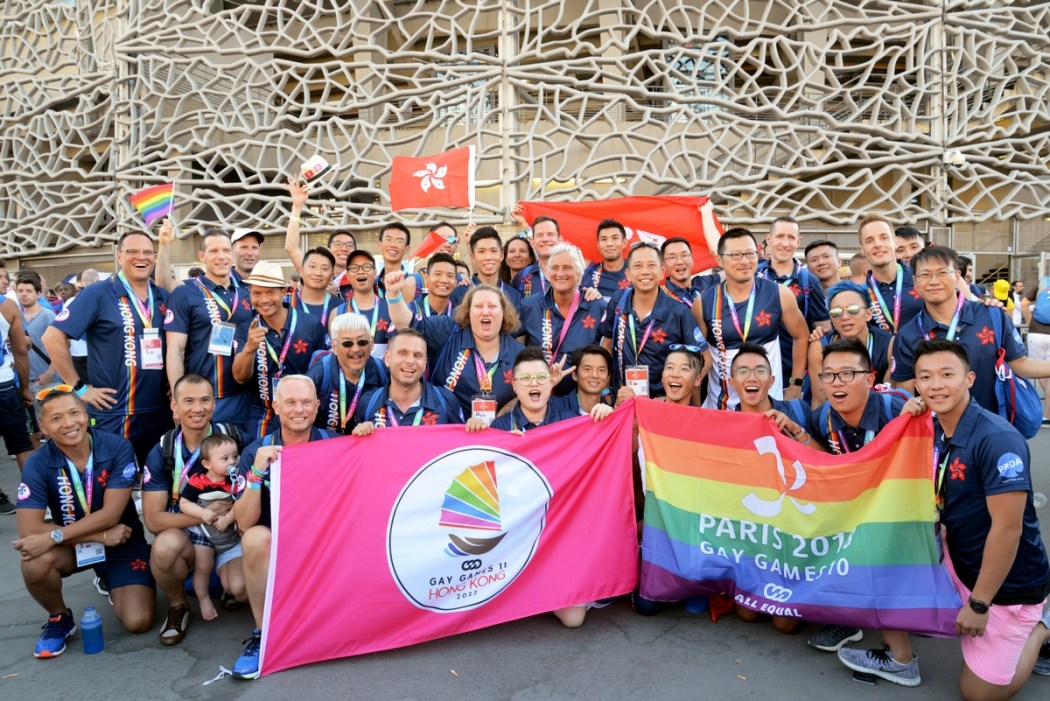
I have not personally participated in discussions of the Gay Games, but I can see why people might be offended by someone characterising them as “disgraceful.” Whatever you think about this, a response on a newspaper letters page which urges Ho to shut up and/or apologise is neither brutal nor forcible. Indeed since 2021 Mr Ho has been voluble on a variety of topics. And he has not apologised. No force, no brutality. Jimmy Lai should be so lucky.
Ho’s quarrel with the Gay Games is the fear that they will be used to “promote same-sex marriage as a special right in Hong Kong.” This is turn takes on a national security tinge: “Spiritual pollution knows no frontiers. To safeguard cultural security on the Chinese mainland, we should guard against the spread of corrosive cultures across the boundaries.”
Goodness, the Chinese mainland is so sensitive! Which brings us to the great Anthem Bandwagon, which agitated so many defenders of cultural security last week.
Rugby Sevens started life as a little end-of-season thing which rugby clubs did for the entertainment of their own members, in much the same spirit as rowing clubs mark the end of the season by having short races in which the crews are picked by lot. No practice, just a fun thing.

This sprouted a national version which was held at Twickenham every year, and in turn led to the Hong Kong Sevens, a carnival of booze and ball games which compensated the city’s foreign inhabitants for the fact that we don’t have real internationals here because our team is not good enough.
After years of success in Hong Kong, Sevens became a thing in itself, sprouting a sort of international circus which circulates the globe, stopping at other places and coming here – public health restrictions permitting – as one stop on the circuit.
And so to South Korea where, at a recent iteration, the Hong Kong team was serenaded with the protest anthem “Glory to Hong Kong” instead of the Chinese national anthem the “March of the Volunteers.” This seems to have been the result of a simple error. As Hong Kong does not have an anthem of its own, if you Google “Hong Kong anthem” you do in fact get “Glory to Hong Kong” among the top results.
This sort of error happens occasionally. But…
Cue outrage. The Hong Kong Rugby Union had “extreme dissatisfaction,” the Hong Kong government said it “strongly deplores and opposes the playing of the song,” Chief Executive John Lee said it was “unacceptable”.
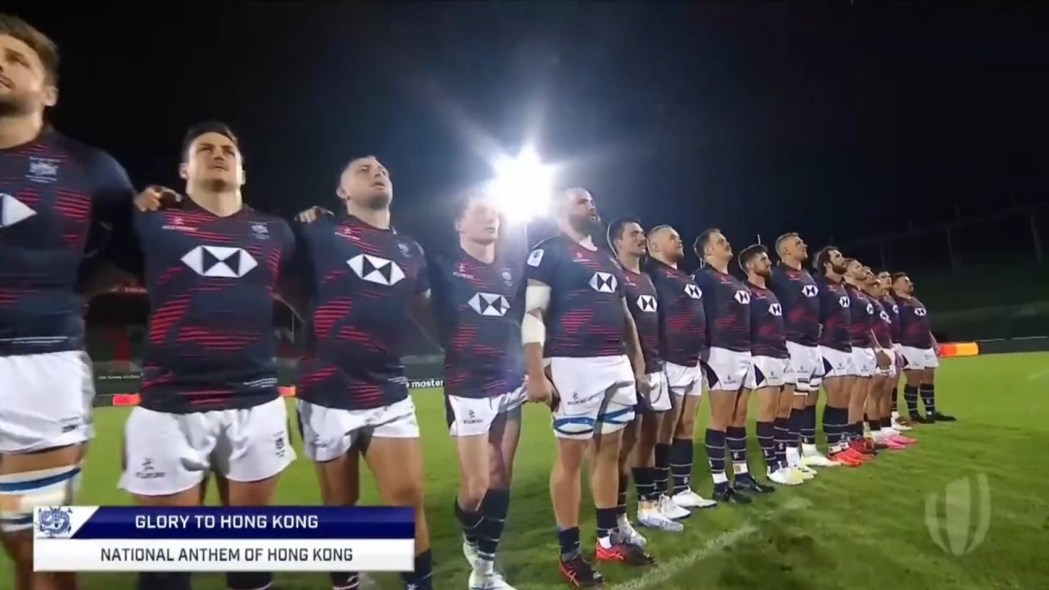
The Secretary for Culture, Sports and Tourism Kevin Yeung said the song was “closely associated with the riots that promoted Hong Kong independence,” which is untrue both in respect of the song and the riots. Junius Ho, unsilenced by his brutal experience on the SCMP letters page, opined that the only solution was to dissolve the Hong Kong team. Nobody told him to shut up.
A Federation of Trade Unions lawmaker called on the government to unleash the national security police (in South Korea?) and Ronny Tong said omnisciently that the playing of the song was “definitely not unintentional.”
Regina Ip thought the sinner involved should be charged with a criminal offence and could then be extradited to Hong Kong. Generally countries will not extradite people for offences committed in their own country which are not offences there. Extradition proceedings would also raise the question of whether the person concerned could get a fair trial in Hong Kong.
An alternative offered by the secretary general of the Sports Federation and Olympic Committee of Hong Kong was that South Korea should be punished by being banned from holding rugby matches, or if possible any international sporting events, “for a while so they can reflect on their actions.”

Meanwhile a queue of increasingly obscure legislators were dipping their bread: Steven Ho discerned an “insult to the nation” and urged the government to “strengthen its efforts on national security matters,” while Tommy Cheung said it was a national security threat “in the flesh.” Lillian Kwok called for more resistance to “foreign influences” and claimed, a surprise, that there were still “books about Hong Kong independence” in Hong Kong public libraries.
It seems to me that it would be better for everyone concerned to make less of a fuss about this. The idea of a Hong Kong “national” team is looking increasingly tricky as we snuggle into the bosom of the motherland. Sports may wonder why, if Hong Kong’s anthem is the “March of the Volunteers,” China should in effect be allowed two entries to everyone else’s one.
Anyway “Glory to Hong Kong” in the instrumental version is not a song, it is a tune. A set of pro-police words for it was written but did not catch on. Tunes are adaptable. Haydn’s “Austrian hymn” for Catholics famously became the Methodist hymn “Glorious Things of Thee are Spoken,” and the German national anthem. The original words for that last purpose – “Deutschland, Deutschland Uber Alles” – have now been replaced with a less bombastic set.
Another conclusion we might draw from the latest calamity is that Hong Kong could usefully have its own anthem, at least for sporting purposes. Was there a tune to “Below the Lion Rock”?
Correction 28/11/2022: An earlier version of this piece misnamed legislator Lillian Kwok as Lilian Ho. We regret the error.
Support HKFP | Policies & Ethics | Error/typo? | Contact Us | Newsletter | Transparency & Annual Report | Apps
Help safeguard press freedom & keep HKFP free for all readers by supporting our team
| HKFP is an impartial platform & does not necessarily share the views of opinion writers or advertisers. HKFP presents a diversity of views & regularly invites figures across the political spectrum to write for us. Press freedom is guaranteed under the Basic Law, security law, Bill of Rights and Chinese constitution. Opinion pieces aim to point out errors or defects in the government, law or policies, or aim to suggest ideas or alterations via legal means without an intention of hatred, discontent or hostility against the authorities or other communities. |

More HKFP OPINION:
HKFP has an impartial stance, transparent funding, and balanced coverage guided by an Ethics Code and Corrections Policy.
Support press freedom & help us surpass 1,000 monthly Patrons: 100% independent, governed by an ethics code & not-for-profit.










